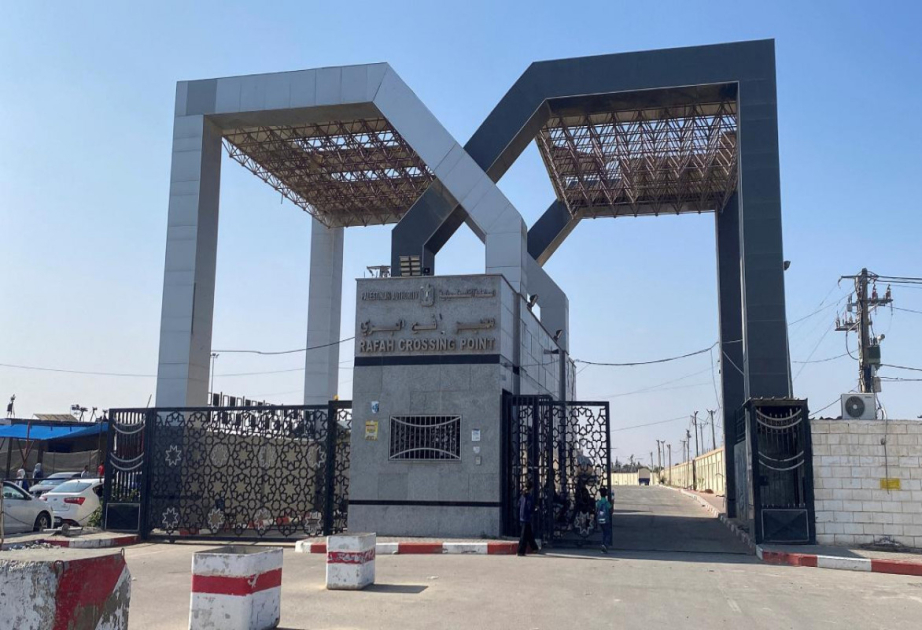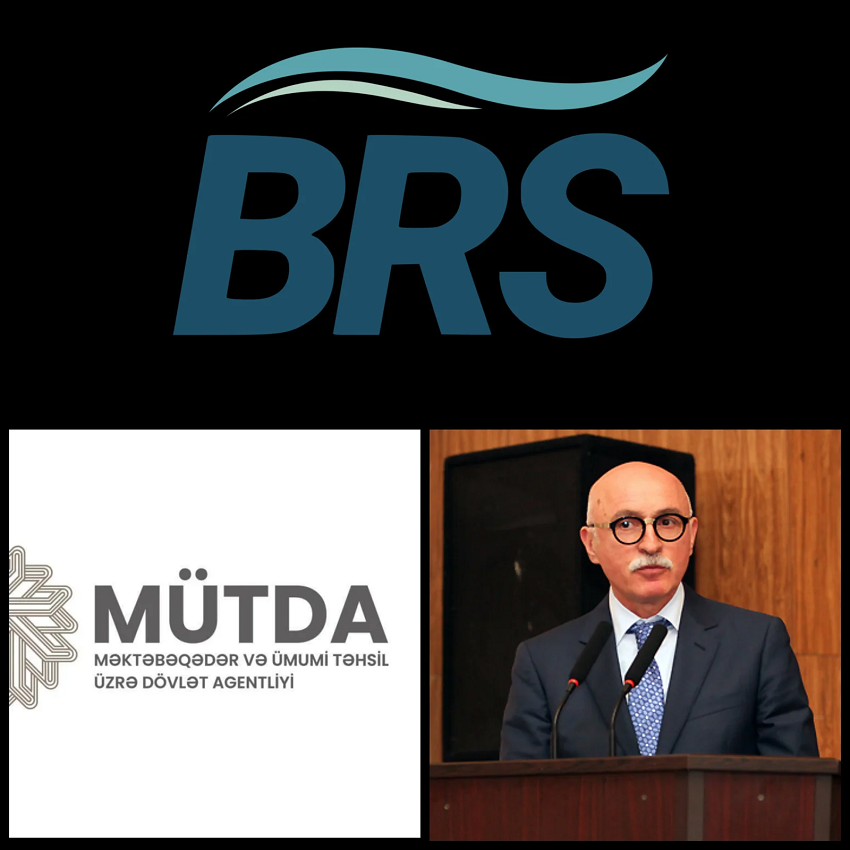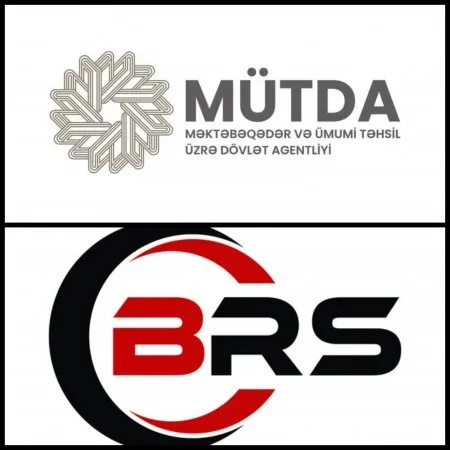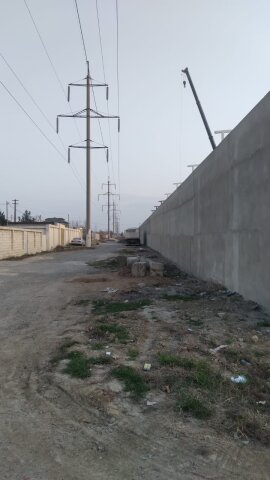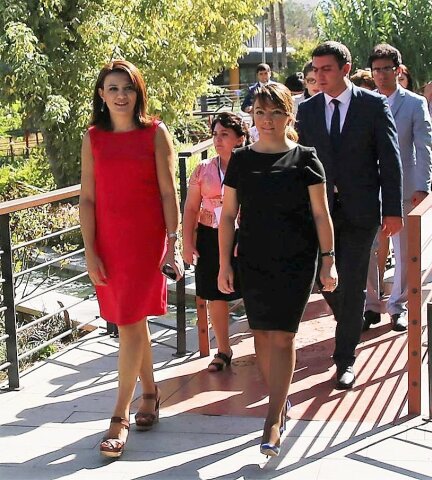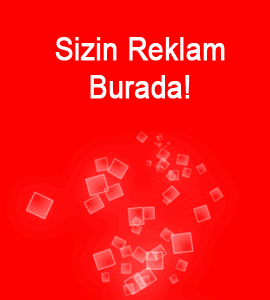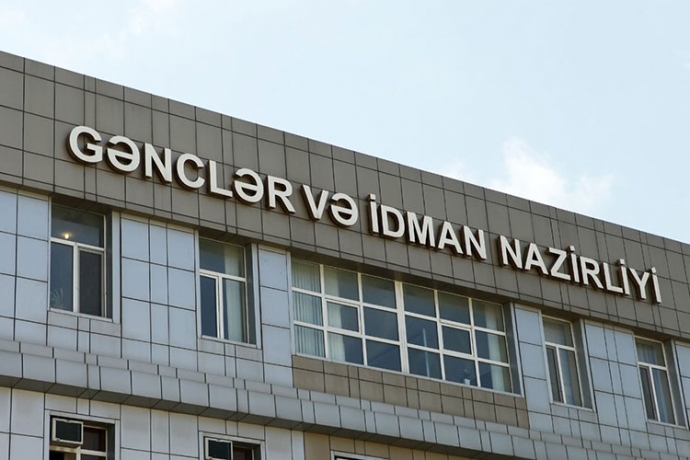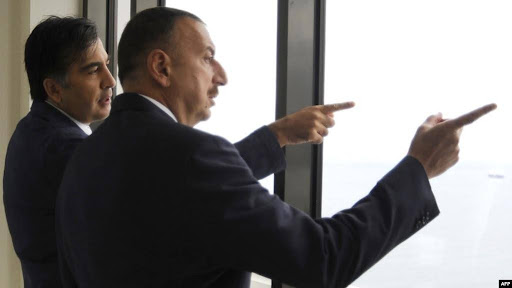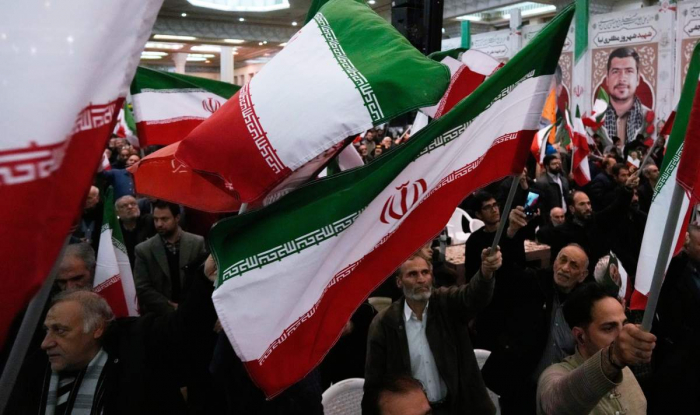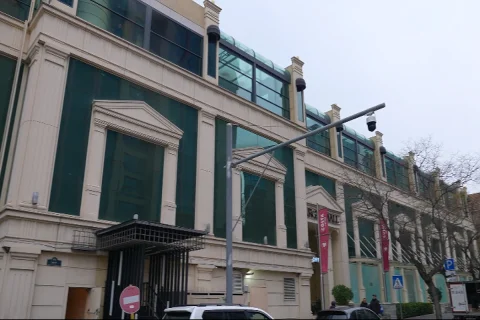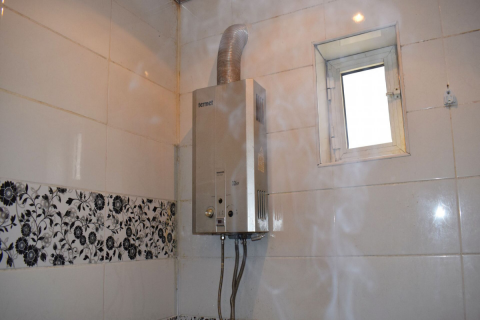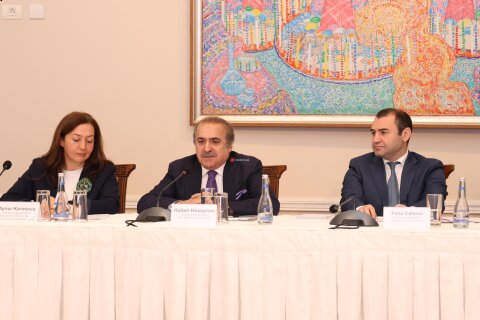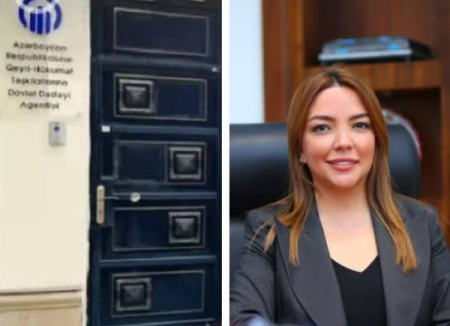Moody’s-dan Azərbaycanın 6 bankına “neqativ” xəbər
 Moody’s beynəlxalq reytinq agentliyi Azərbaycanın 6 özəl Bankının yeni reytinqini açıqlayıb.
Moody’s beynəlxalq reytinq agentliyi Azərbaycanın 6 özəl Bankının yeni reytinqini açıqlayıb.
Xeberinfo.com: Məlumata görə, “Moody’s Investors Service” beynəlxalq kredit reytinqi agentliyi VTB Bank (Azərbaycan), Bank of Baku ASC və Unibank Kommersiya Bankının Baza Kredit Qiymətləndirilməsini (BCAs) və uzunmüddətli depozit reytinqlərini aşağı salıb və “neqativ” (mənfi) proqnoz verib.
Həmçinin Moody’s, ASC Xalq Bank, Bank Respublika və Kapital Bank ASC-nin uzunmüddətli depozit reytinqlərinin proqnozunu “Stabil”dən “Neqativ”ə dəyişib.
“Neqativ” (Mənfi) proqnoz o deməkdir ki, reytinq daha da aşağı salına bilər. Bu bank sektorunun nüfuzuna mənfi təsir göstərəcək və onların xaricdən resurs cəlb etmək imkanını məhdudlaşdıracaq. Eyni zamanda, bankların cəlb etdiyi xarici resursların faiz dərəcəsi də daha artıq olacaq.
“Azərbaycan Beynəlxalq Bankı”nın uzunmüddətli depozit və təminatsız kredit reytinqi Ba3 səviyyəsində, BCA isə b3 səviyyəsində saxlanılıb.
Agentlik bankların reytinqlərinə dekabrda manatın devalvasiyasının, üzən məzənnəyə keçid və bankların sürətlə dollarlaşmasının mənfi təsir etdiyini deyir.
“VTB Bank” (Azerbaijan) ASC-nin “BCA” reytinqi b2-dən caa1-ə, uzunmüddətli depozit reytinqi isə B1-dən B2-yə salınıb.
“Bank of Baku”nun BCA üzrə reytinqi b1-dən b3-ə, uzunmüddətli depozit reytinqi isə B1-dən B3-ə endirilib.
“Unibank” ın BCA üzrə reytinqi b2-dən b3-ə, uzunmüddətli depozit reytinqini isə B2-dən B-3 səviyyəsinə endirilib.
Moody’s takes rating actions on six Azerbaijani banks
Moody’s Investors Service has today taken rating actions on six Azerbaijani banks. Moody’s downgraded the Baseline Credit Assessments (BCAs) and downgraded the long-term deposit ratings of VTB Bank (Azerbaijan), OJSC Bank of Baku and UniBank Commercial Bank with a negative outlook. Moody’s also changed the outlook to negative from stable on the long-term deposit ratings of OJSC XALQ BANK, Joint Stock Commercal Bank Respublika and Kapital Bank OJSC, while the banks’ ratings were affirmed. The long-term deposit and senior unsecured debt rating of International Bank of Azerbaijan at Ba3 with a stable outlook and BCA at b3 were unaffected.
The rating actions reflect the negative impact of the depreciation of the Azerbaijani manat on the banks’ asset quality, profitability and funding after the introduction in December 2015 of a free-floating exchange rate regime, as well as heightened dollarization of the banks’ funding profiles. This rating action has led Moody’s to lower the macro profile of Azerbaijan (Baa3 stable) to “Weak-” from “Weak” reflecting a very high degree of dollarization relative to other countries in the CIS region and the resulting increased fragility in funding. We expect these events to have a sustained impact on the Azerbaijani banks given: (i)their high exposure to foreign currency-denominated lending; (ii) Moody’s expectation of further asset quality deterioration amid sharply fallen oil prices, resulting in worsening operating environment; and (iii) declining capital buffers to absorb mounting credit losses.
A full list of affected ratings is provided towards the end of this press release.
RATINGS RATIONALE
— VTB BANK (AZERBAIJAN)
The downgrade of VTB Bank’s (Azerbaijan) (VTBAZ) BCA to caa1 from b2 and long-term deposit ratings to B2 from B1 with a negative outlook reflects the expected drop in its capitalisation below the regulatory minimum level following the depreciation of the manat, as well as further expected credit losses given its high exposure to foreign currency loans. At the same time, current deposit ratings continue to incorporate a very high probability of affiliate support from Russia-based Bank VTB, JSC in case of need (VTB Russia, FC deposits: Ba2 negative, BCA: b1).
VTBAZ’s exposure to foreign-currency loans is the highest among rated peers at 66% as of December 1, 2015, given that the bank is funded mainly by parental funding also denominated in foreign currency. Most of these loans are granted to borrowers without exports and hence without a natural source of US dollars. Moreover, a large portion of FX loans are to retail customers (44% of total loans as of Q3 2015), who will be less able to service their debt, which therefore exposes the bank to elevated credit risk in the currently worsening operating environment. The bank’s asset quality has already worsened markedly, with NPLs overdue by more than 90 days increasing to 9.1% as of Q3 2015 from 4.5% as of year-end 2014, according to the bank’s management data. Restructured loans were up to 8% as of Q3 2015 from 1.2% as of year-end 2014. Moody’s expect a further increase in NPLs and credit costs, undermining profitability and capitalization.
The rating agency estimates that following the manat devaluation in December 2015, VTBAZ’s capitalization level dropped below the regulatory minimum thresholds, given its high share of FX risk-weighted assets (RWAs), and revaluation of loan loss reserves (LLRs) on FX loans. However, Moody’s believes that shareholders will provide necessary capital support to the bank as they have done in the past, while the bank currently enjoys forbearance from the Central Bank of Azerbaijan (CBA).
— OJSC BANK OF BAKU
The downgrade of OJSC Bank of Baku’s BCA to b3 from b1 and downgrade of the long-term deposit ratings to B3 from B1 with a negative outlook reflects Moody’s expectation that currency depreciation will lead to a worsening of the bank’s asset quality and profitability, while loss-absorption buffers will remain modest in the next 12-18 months.
OJSC Bank of Baku’s asset quality weakened in H1 2015, following the seasoning of the retail portfolio after the rapid growth of previous years. This led to an increase in the bank’s credit costs to 14.9% of average gross loans in H1 2015, up from 6.0% in 2014 and 1.7% in 2013. The currency depreciation in December 2015 will also affect asset quality, as most of the bank’s foreign currency loans (representing 27% of the total portfolio as of December 1, 2015) are to unhedged borrowers. In addition, accelerated consumer price inflation, along with a potential increase in unemployment, will affect individuals’ real disposable income and, as a result, their capacity to service debt.
Moody’s believes that the bank’s loss-absorption capacity will be modest during the next 12-18 months due to (i) elevated provisioning charges; and (ii) a foreign currency revaluation loss of about AZN14.5 million, recognized in December 2015 according to management data. The rating agency believes that historically robust provisions coverage of over 100% of restructured and past due over 90 days loans in 2014 and H1 2015, along with healthy pre-provisioning profitability (PPI/average assets of 12.7% in H1 2015) and expected deleveraging will somewhat offset adverse pressure on the bank’s loss-absorption cushion.
— UNIBANK COMMERCIAL BANK
The downgrade of Unibank’s BCA to b3 from b2 and downgrade of the long-term deposit ratings to B3 from B2 with a negative outlook reflects the significantly worsened asset quality and declined capitalization following the manat depreciation as well as Moody’s expectation of further pressure on the bank’s credit profile from a heightened provisioning burden.
Unibank has a high share of foreign currency loans at 44% of its loan book as of December 1, 2015, which exposes it to the risk of continued asset quality deterioration as most of the borrowers, especially in the retail segment, do not have foreign currency revenues and will thus be less able to service their debt. Consumer loans, including credit cards and unsecured consumer loans, comprised around 59% of the gross loan book as of October 1, 2015, according to the bank’s management data. Unibank reported a significant increase in NPLs overdue by more than 90 days at 14.3% as of October 1, 2015 from 6.8% at year-end 2014. This is a result of loan book seasoning amid worsened economic conditions and a slowdown in lending growth, with a consequent increase in credit costs to around 10% annualized as of October 1, 2015. Moody’s expect a further increase in the bank’s problem loans and credit costs given the weakening of borrowers’ creditworthiness, a potential increase in unemployment, and higher inflation expectations that will also worsen the population’s purchasing power.
Unibank’s capital buffer was negatively affected by the manat devaluation following a revaluation of foreign currency assets, LLRs on foreign currency loans and short open currency positions. Regulatory total CAR and Tier 1 decreased to 14.4% and 11.7% as of January 1, 2016 from 16.4% and 14.2% respectively as of December 1, 2015. The rating agency believes that the bank’s profitability and capital buffer will be further constrained by the increased provisioning burden amid worsening asset quality.
— OJSC XALQ BANK
The change of outlook on the long-term bank deposit ratings of OJSC XALQ BANK to negative from stable is driven by the negative pressure on the bank’s standalone credit profile over the next 12-18 months, prompted by the expected deterioration of the loan book quality along with increases in provisioning charges.
According to the local GAAP report as of December 1, 2015, foreign currency-denominated loans accounted for 50% of the bank’s total lending. Moody’s expects a deterioration in asset quality driven by the depreciation of the manat, as up to the half of foreign currency borrowers are not hedged. The impact is aggravated by the bank’s significant concentration of the loan portfolio with the 20 largest exposures exceeding 400% of Tier 1 equity, which may lead to a detrimental effect on the bank’s asset quality.
At the same time, the affirmation of OJSC XALQ BANK’s b3 BCA takes into account the bank’s strong loss-absorption cushion and supportive liquidity profile. The bank reported regulatory Tier 1 and total capital ratios of 22.2% and 23.0%, respectively, as of December 1, 2015. This materially exceeds the regulatory thresholds of 5% and 10%, respectively, while its liquidity profile has historically been supported by a stable funding base, evidenced during the recent shocks in Q1 2015. Moody’s incorporates in the deposit rating of OJSC XALQ BANK a one-notch uplift from the bank’s BCA of b3, thanks to a moderate probability of state support in case of need, based on the bank’s status as the fourth largest bank in Azerbaijan, with market share of around 5% of total banking assets.
— JOINT STOCK COMMERCAL BANK RESPUBLIKA
The change of the outlook to negative from stable on Bank Respublika’s B2 long-term deposit rating reflects intensified pressure on the bank’s standalone credit profile from currently adverse market conditions in Azerbaijan, including the manat depreciation, which negatively impacts the bank’s asset quality and profitability.
Moody’s notes a deteriorating trend in asset quality given worsened economic conditions and weakened borrower creditworthiness. Bank Respublika’s NPLs overdue by more than 90 days increased to 8.2% as of Q3 2015, up from 1.2% at year-end 2014. The bank has been actively restructuring its foreign currency loan book following prescription from the central bank. It managed to reduce its currency exposure through transfer of unhedged US dollar loans into local currency during 2015, thus decreasing the share of foreign currency loans to 28% as of December 1, 2015, from 44% at year-end 2014. The bank’s credit costs amounted to around 8% of loans annualized in Q3 2015. Moody’s expect a further increase in the bank’s problem loans and credit costs due to the seasoning of the loan book, which will negatively affect profitability.
Bank Respublika managed to maintain stable capitalization in 2015, following its deleveraging strategy and refusal to pay a dividend to shareholders in order to preserve the capital base. The regulatory Tier 1 capital ratio was 13.8% and the total capital adequacy ratio 20.4% as of December 1, 2015. The rating agency estimates that following the manat devaluation in December, the bank’s capitalization level dropped by around three percentage points, given the revaluation of remaining foreign currency assets and LLRs. More positively, Moody’s notes that the bank did not suffer losses from currency positions and keeps a high liquidity cushion.
— KAPITAL BANK OJSC
Moody’s affirmed Kapital Bank’s current BCA at b1 and long-term deposit ratings at Ba3, whereas changed the outlook to negative from stable reflecting the pressure on the bank’s credit profile from deteriorating market conditions and expectations of worsening asset quality. Current deposit ratings incorporate a one-notch uplift based on the agency’s estimate of a moderate probability of government support to the bank in the event of need, given its high market share and large customer base, as well as its ties to the government.
Moody’s expects Kapital Bank’s asset quality to be constrained by the challenging operating environment in Azerbaijan as the loan book seasons. The proportion of loans more than 90 days overdue has been relatively stable over the first three quarters of 2015, at 6.7% as of October 1, 2015 (7.7% at year-end 2014). However, the rating agency notes a surge in restructured loans to 11.7% of loans, while loans overdue by more than 30 days grew to 8.1% of loans as of Q3 2015, according to the bank’s management data. Moody’s expects a further worsening trend in asset quality following the change in the currency regime and slowdown of economic activity. Almost half of Kapital Bank’s loan was to retail customers as of Q3 2015, although related risk is partially mitigated by its focus on more creditworthy customers, e.g. employees of corporate clients, government bodies, and budget recipients, whose cash flows are captured by the bank. Furthermore, Kapital Bank has a relatively moderate level of foreign currency exposure compared to peers, at 25% of gross loans as of Q3 2015, which are granted mainly to government-related issuers.
Moody’s expects the bank to remain profitable in the next 12 months, although it will be under pressure from an increasing provisioning burden and higher funding costs. The bank’s capital cushion is sound with regulatory total capital and Tier 1 ratios of 19.5% and 14.7%, respectively, as of January 1, 2016.
WHAT COULD MOVE THE RATINGS UP/DOWN
The ratings could be downgraded if the risk absorption capacity and financial fundamentals of the affected banks erode beyond Moody’s current expectations, resulting from a further worsening in operating conditions. Conversely, improvements in the Azerbaijan operating environment and/or banks’ demonstrated resilience could enable a return to stable outlooks on the ratings.
The principal methodology used in these ratings was Banks published in January 2016. Please see the Credit Policy page on www.moodys.com for a copy of this methodology.
LIST OF AFFECTED RATINGS
The following rating actions were taken:
VTB Bank (Azerbaijan)
– Baseline Credit Assessment (BCA) and Adjusted BCA were downgraded to caa1/b2 from b2/b1
– Long-term LC and FC Deposit ratings were downgraded to B2 from B1, outlook remains Negative
– Short-term LC and FC Deposit ratings were affirmed at NP
– Long-term Counterparty Risk Assessment was downgraded to B1(cr) from Ba3(cr)
– Short-term Counterparty Risk Assessment was affirmed at NP(cr)
– Outlook, Remains Negative
OJSC Bank of Baku
– Baseline Credit Assessment (BCA) and Adjusted BCA were downgraded to b3 from b1
– Long-term LC and FC Deposit ratings were downgraded to B3 from B1, outlook remains Negative
– Short-term LC and FC Deposit ratings were affirmed at NP
– Long-term Counterparty Risk Assessment was downgraded to B2(cr) from Ba3(cr)
– Short-term Counterparty Risk Assessment was affirmed at NP(cr)
– Outlook, Remains Negative
UniBank Commercial Bank
– Baseline Credit Assessment (BCA) and Adjusted BCA were downgraded to b3 from b2
– Long-term LC and FC Deposit ratings were downgraded to B3 from B2, outlook changed to Negative from Stable
– Short-term LC and FC Deposit ratings were affirmed at NP
– Long-term Counterparty Risk Assessment was downgraded to B2(cr) from B1(cr)
– Short-term Counterparty Risk Assessment was affirmed at NP(cr)
– Outlook, Changed To Negative From Stable
OJSC XALQ BANK
– Baseline Credit Assessment (BCA) and Adjusted BCA were affirmed at b3
– Long-term LC and FC Deposit were affirmed at B2, outlook changed to Negative from Stable
– Short-term LC and FC Deposit ratings were affirmed at NP
– Long-term Counterparty Risk Assessment was affirmed at B1(cr)
– Short-term Counterparty Risk Assessment was affirmed at NP(cr)
– Outlook, Changed To Negative From Stable
Joint Stock Commercal Bank Respublika
– Baseline Credit Assessment (BCA) and Adjusted BCA were affirmed at b2
– Long-term LC and FC Deposit ratings were affirmed at B2, outlook changed to Negative from Stable
– Short-term LC and FC Deposit ratings were affirmed at NP
– Long-term Counterparty Risk Assessment was affirmed at B1(cr)
– Short-term Counterparty Risk Assessment was affirmed at NP(cr)
– Outlook, Changed To Negative From Stable
Kapital Bank OJSC
– Baseline Credit Assessment (BCA) and Adjusted BCA were affirmed at b1
– Long-term LC and FC Deposit ratings were affirmed at Ba3, outlook changed to Negative from Stable
– Short-term LC and FC Deposit ratings were affirmed at NP
– Long-term Counterparty Risk Assessment was affirmed at Ba2(cr)
– Short-term Counterparty Risk Assessment was affirmed at NP(cr)
– Outlook, Changed To Negative From Stable
REGULATORY DISCLOSURES
For ratings issued on a program, series or category/class of debt, this announcement provides certain regulatory disclosures in relation to each rating of a subsequently issued bond or note of the same series or category/class of debt or pursuant to a program for which the ratings are derived exclusively from existing ratings in accordance with Moody’s rating practices. For ratings issued on a support provider, this announcement provides certain regulatory disclosures in relation to the credit rating action on the support provider and in relation to each particular credit rating action for securities that derive their credit ratings from the support provider’s credit rating. For provisional ratings, this announcement provides certain regulatory disclosures in relation to the provisional rating assigned, and in relation to a definitive rating that may be assigned subsequent to the final issuance of the debt, in each case where the transaction structure and terms have not changed prior to the assignment of the definitive rating in a manner that would have affected the rating. For further information please see the ratings tab on the issuer/entity page for the respective issuer on www.moodys.com.
For any affected securities or rated entities receiving direct credit support from the primary entity(ies) of this credit rating action, and whose ratings may change as a result of this credit rating action, the associated regulatory disclosures will be those of the guarantor entity. Exceptions to this approach exist for the following disclosures, if applicable to jurisdiction: Ancillary Services, Disclosure to rated entity, Disclosure from rated entity.
The below contact information is provided for information purposes only. Please see the ratings tab of the issuer page at www.moodys.com, for each of the ratings covered, Moody’s disclosures on the lead analyst and the Moody’s legal entity that has issued the ratings.
Regulatory disclosures contained in this press release apply to the credit rating and, if applicable, the related rating outlook or rating review.
Please see www.moodys.com for any updates on changes to the lead rating analyst and to the Moody’s legal entity that has issued the rating.
Please see the ratings tab on the issuer/entity page on www.moodys.com for additional regulatory disclosures for each credit rating.





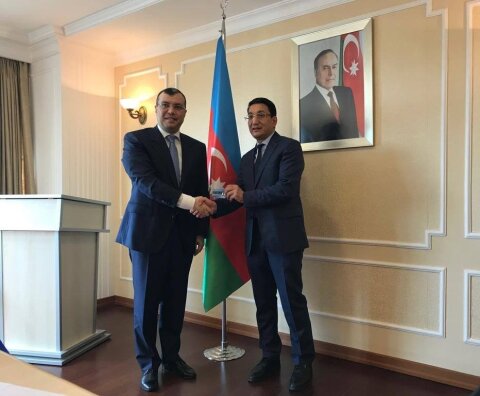




 AZ
AZ RU
RU




















